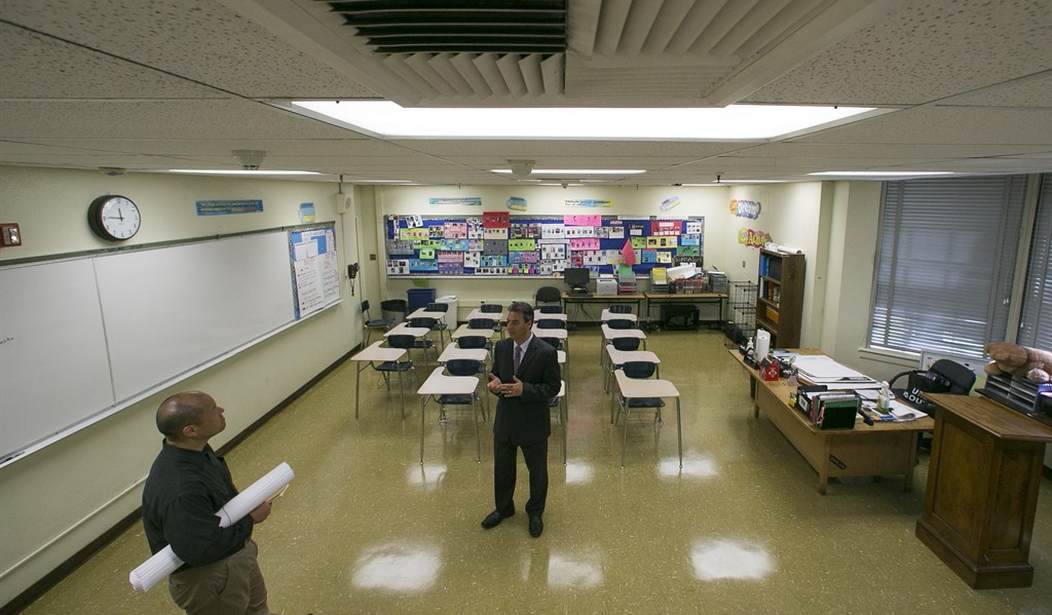This administration, like too many before it, has a standard response when anyone points out that American education is in trouble: Why, just continue to do what an enlightened federal bureaucracy has been doing for years, only bigger and better. Spend even more money on a growing number of educational programs. Create more preschools. Produce even more certified teachers on the treadmill that our departments and schools of education has become. And provide a whole new raft of social, economic and medical benefits onsite. That is, at the schools themselves. Call it the one-stop solution.
As the Sage of Baltimore himself, the late great H.L. Mencken, once said: "For every complex problem there is an answer that is clear, simple and wrong."
No, just spending more money on programs that work only imperfectly isn't likely to prove any kind of a panacea for the schools -- and the kids who attend them, or the families who have watched them flail and fail year after year.
What's needed now, and has been needed for some time, isn't just more financial capital for our troubled schools but social capital. Which is the conclusion reached by Harvard's Robert Putnam, author of the landmark study "Bowling Alone," which traced the deterioration of American social connections at a time when solitary activities -- like watching television -- have increasingly replaced team sports like bowling leagues and joint activities like Parent-Teacher Associations, the Jaycees, church socials and so profusely on. Wasn't there a time when every town was full of such groups? Not so much now.
In his latest book and warning, "Our Kids: The American Dream in Crisis," Professor Putnam outlines the loss of social capital in this country. No wonder the lonely and isolated seem to have taken the place of Edmund Burke's little platoons that were once among the basic building blocks of society and made it a network of friends, family and familiar associates.
Recommended
To know a society and the ideas that have shaped it, consciously or unconsciously, it helps to know the history of those ideas -- their ideological pedigree. The always relevant Alexis de Tocqueville may have stayed in America for only a short time during the Jacksonian era, but it was long enough for our French visitor to have made the most prescient observations. And they still hold up.
For example, Tocqueville observed that Americans were prone to attend as many meetings as possible about the issues of the day -- economic, political and social. We were the original joiners. Name a new game or political cause, and soon enough we'd formed a club to support it. Or just debate it.
Back in 1916, an article by one L.J. Hanifan explored the extent of support for local schools, and concluded that it indicated a deep sense of social cohesion and personal investment in the community. His was one of the first uses of the term Social Capital in scholarly literature. And small schools still have their vocal fans who resist any effort to consolidate them into impersonal factories of education.
..
Mr. Hanifan made it clear that when he wrote of social capital, "I do not refer to real estate, or to personal property or to cold cash, but rather to that in life which tends to make these tangible substances count for most in the daily lives of people, namely, goodwill, fellowship, mutual sympathy and social intercourse among a group of individuals and families who make up a social unit. ... If he may come into contact with his neighbor, and they with other neighbors, there will be an accumulation of social capital, which may immediately satisfy his social needs and which may bear a social potentiality sufficient to the substantial improvement of living conditions in the whole community. The community as a whole will benefit by the cooperation of all its parts, while the individual will find in his associations the advantages of the help, the sympathy and the fellowship of his neighbors."
..
Let us return to that past when social capital was plentiful, and produced not just a wealth of material progress but of community spirit. And spirit is all.
In his blockbuster of a book back in 1963 that shook up the whole country, "The Fire Next Time," James Baldwin explored not just the plight of the American Negro -- that was still an acceptable term at the time -- but the faith and hope that an institution like the black church gave the ghetto, although Baldwin would leave the church soon after having attracted a considerable following as a boy preacher in Harlem. Oh, the troubles he'd seen. Yet he was able to write: "In spite of everything there was in the life I fled a zest and a joy and a capacity for facing and surviving disaster that are very moving and very rare" today.
Lord, revive us again! But seek ye first the kingdom of God, and his righteousness; and all these things shall be added unto you. Including social capital.
























Join the conversation as a VIP Member